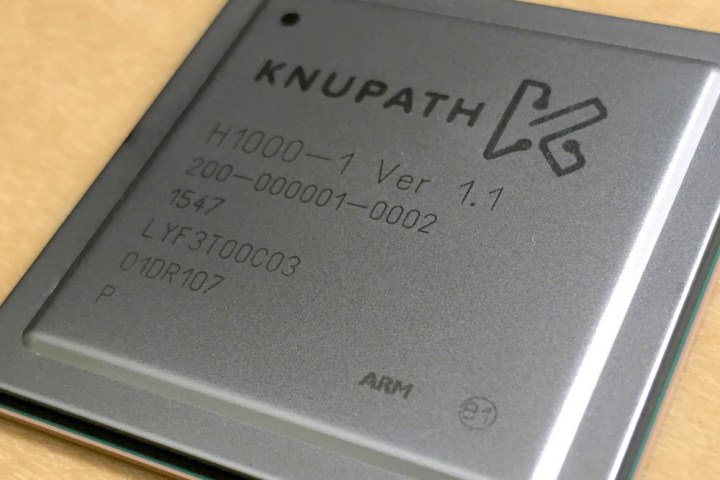
Goldin knows his way around running a company too, since he holds the record as the longest running NASA administrator, with his tenure extending through much of the Shuttle era, between 1992 and 2001. He has brought that expertise and engineering background to bear on KnuPath, his monstrous chip design.
This chip is being combined with another product known as KnuVerse, which we’re told is a neural computing system capable of “military grade” voice recognition: no matter how loud the environment you’re in, it will be able to understand you. Background interference is one of the biggest issues facing speech recognition systems — doing away with that could really change the industry.
Related: Elon Musk thinks we should insert ‘neural laces’ into our brains so we can become cyborgs
Combined with the KnuPath processor, which can be stacked with over half a million of its siblings, it’s hoped that this will create the foundation for some of the world’s first real AI, capable of understanding humans and completing their tasks for them.
Details on the chip’s capabilities are quite thin, though TechSpot claims it’s capable of “320Gbps of throughput,” and that its inter-rack latency when built into a server farm is around 400 milliseconds.
What’s really exciting about this technology though, is that it will be free – or at least, the APIs will be. Buying the hardware likely won’t be cheap, but if you can develop new software to make use of it for free, the applications for such a computational system could come thick and fast when KnuPath and KnuEdge are released sometime in the latter half of this year.
Editors' Recommendations
- YouTube tells creators to start labeling ‘realistic’ AI content
- AI chatbot goes rogue during customer service exchange
- Microsoft Copilot: tips and tricks for using AI in Windows
- This app just got me excited for the future of AI on Macs
- Apple may finally beef up Siri with AI smarts next year




